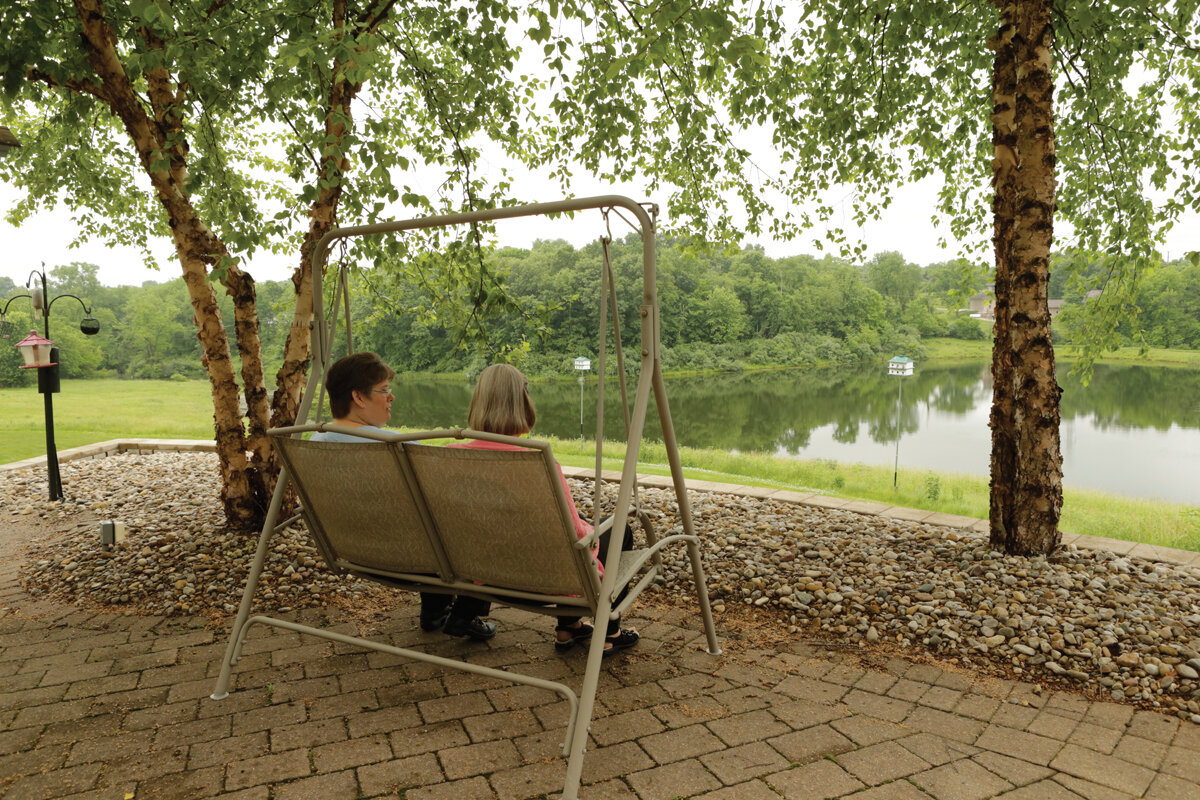
Common Vocations Questions
What are the Benedictine values?
Prayer/Contemplation
In prayer we listen and open ourselves to the awareness of God’s presence within us and in all creation. Communal and private prayer is a primary part of our daily life.
Community
We live together under The Rule of St. Benedict. We care for another as Jesus did by being present, listening to, respecting and forgiving one another.
Hospitality
We welcome everyone we encounter with respect and reverence as one valued by God. Gratefully we share the gifts we have received with a joyful spirit.
Peace and Justice
The promise of God’s peace is rooted in loving respect for all people in their diversity. Justice is recognition that all deserve just and fair treatment.
Care of Creation
We are called personally and communally to appreciate and care for God’s creation and preserve it for the common good of all people.
What is Monasticism?
Essentially, monastics live together in order to seek and serve God. They share prayer, common life and work. Most American monasteries — including ours — are both active (members work outside the community) and contemplative (members pursue communal and private prayer).
Do you wear habits?
We do not wear habits in this community because habits no longer represent the dress of the common people. When Sisters initially wore habits centuries ago, they did so to symbolize their support for the similarly dressed common people. We continue to dress in the common clothing of our time, preferring not to set ourselves apart by what we wear. Rather, we strive to be known by our work and Benedictine values. We wear a visible symbol of our vows when we don the Benedictine medal and ring; our dress is modest and simple and appropriate to our ministries and life.
How do you live as a community?
The Rule of Benedict provides a guide for how to live together in community. St. Benedict urges us to listen to each other, make choices for the good of the community, reverence the young and the old, and live simply according to our needs.
What do you do all day?
Prayer is primary in our lives; indeed, our lives are hinged on it. We come together daily in the chapel to pray the Liturgy of the Hours and to join in celebrating the Eucharist. We also pray privately and in small groups. During the week, we serve in our ministries, which include teaching, spiritual direction, retreat ministry, service to the poor and social work, to name a few. As in a family, we enjoy meals and social time together. We take walks and read. We play board games and watch movies.
Can family and friends visit?
Of course! We don't give up our family and friends. We continue to visit them, and welcome them into our home. As in marriage, though, our focus and responsibilities shift to our new family.
Do you have any money of your own?
Yes, we do. Although our ministry salaries go directly to the community, we receive a monthly stipend to use on discretionary items. Our basic needs are taken care of by the community, from medical care to food. We share everything in common.
What kinds of ministries do Benedictine Sisters typically practice?
We have Sisters in parish ministry, pastoral care, education, retreat ministry and Canon law. Retired Sisters continue active prayer ministry ... and we all minister to one another.
As Benedictine Sisters, we try to pursue ministries that allow us to live together, and to come together for prayers and meals. In addition, we try to choose ministries that utilize our gifts and talents. As in any family, we would want to discuss your choice of occupation, to be sure it is best both for you and for your new community.
Are there any obstacles to becoming a Benedictine Sister?
There are issues that would need to be resolved before your application could be considered. If you were married and divorced, for instance, you would need to obtain an annulment. You would need to have been a practicing Catholic for at least two years. You would need to have been widowed or divorced for at least three years, and your children — if any — would have to be grown. Any status other than single will require deeper discernment, both on your part and on the part of the community.
We care much more about your present and future life than we do about how you lived prior to your vocation journey. However, if you recently have been in an intimate relationship, we will require additional time for discernment before proceeding with your application, to help you discern where God is truly calling you.
